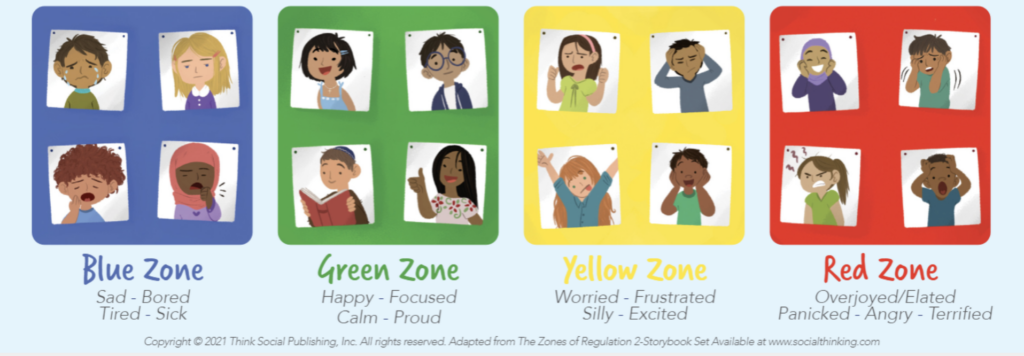By Lacey Lubenow MOTR/L, CLC
April is Occupational Therapy Month! We are continuing to highlight some important topics in the world of Occupational Therapy, this week is all about Self-Regulation!
Occupational therapy is often misunderstood due to the word ‘occupation’ being misleading to what the profession actually does. To better understand occupational therapy, it’s important to know that when the profession began, the word occupation was meant to be used to describe meaningful activities that ‘occupy’ your time. This concept was then used as a means of therapy, and still is today.
As a profession, we recognize the importance of doing meaningful daily activities as the key to better health and well-being. In pediatrics, self-regulation is an important skill that is often targeted to assist with increasing performance and participation in these meaningful activities.
Self-regulation is the ability to manage emotions, behaviors, and reactions in different situations. It’s an important skill for children that helps them succeed in school, relationships, and everyday life. In pediatric occupational therapy, self-regulation is often a central focus and may include strategies to assist with managing impulses, staying calm when upset, focusing on tasks, and interacting appropriately with others. It’s critical for emotional well-being, academic success, and social interactions.
Children with strong self-regulation skills are better at:

Pediatric OTs support children by using strategies tailored to their unique needs. There are many approaches to promote improved regulation and they are used depending on the child’s specific needs:
Curriculums like the Zones of Regulation, How Does Your Engine Run, and Superflex, are frequently used as a framework to assist in boosting children’s emotional awareness and control by using specific language, visuals, and concepts that are easy to understand and apply.
Self-regulation is vital for children’s success in everyday life. Pediatric occupational therapy provides the tools and strategies to help children manage their emotions and behaviors, setting them up for long-term success. Through sensory integration, coping skills, and structured routines, OT can support children in becoming more resilient, independent, and capable in their daily occupations.